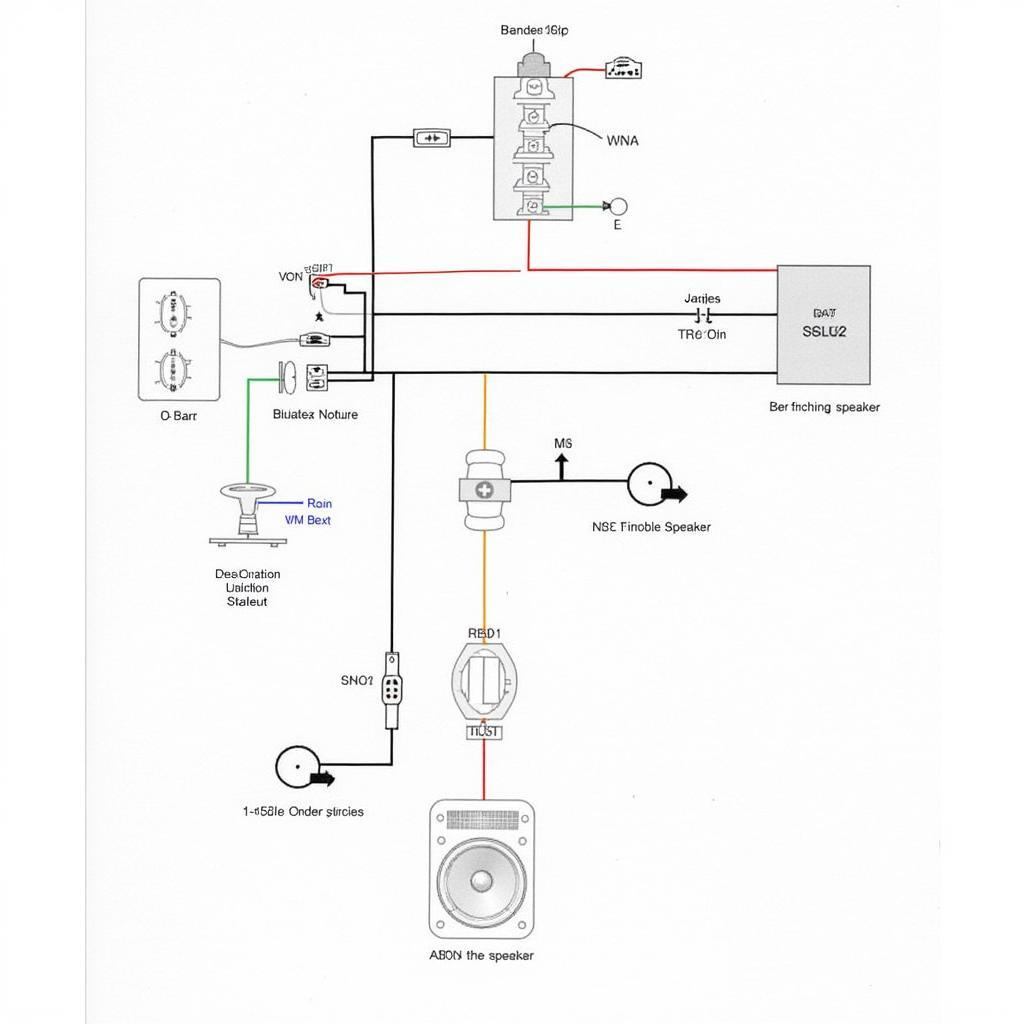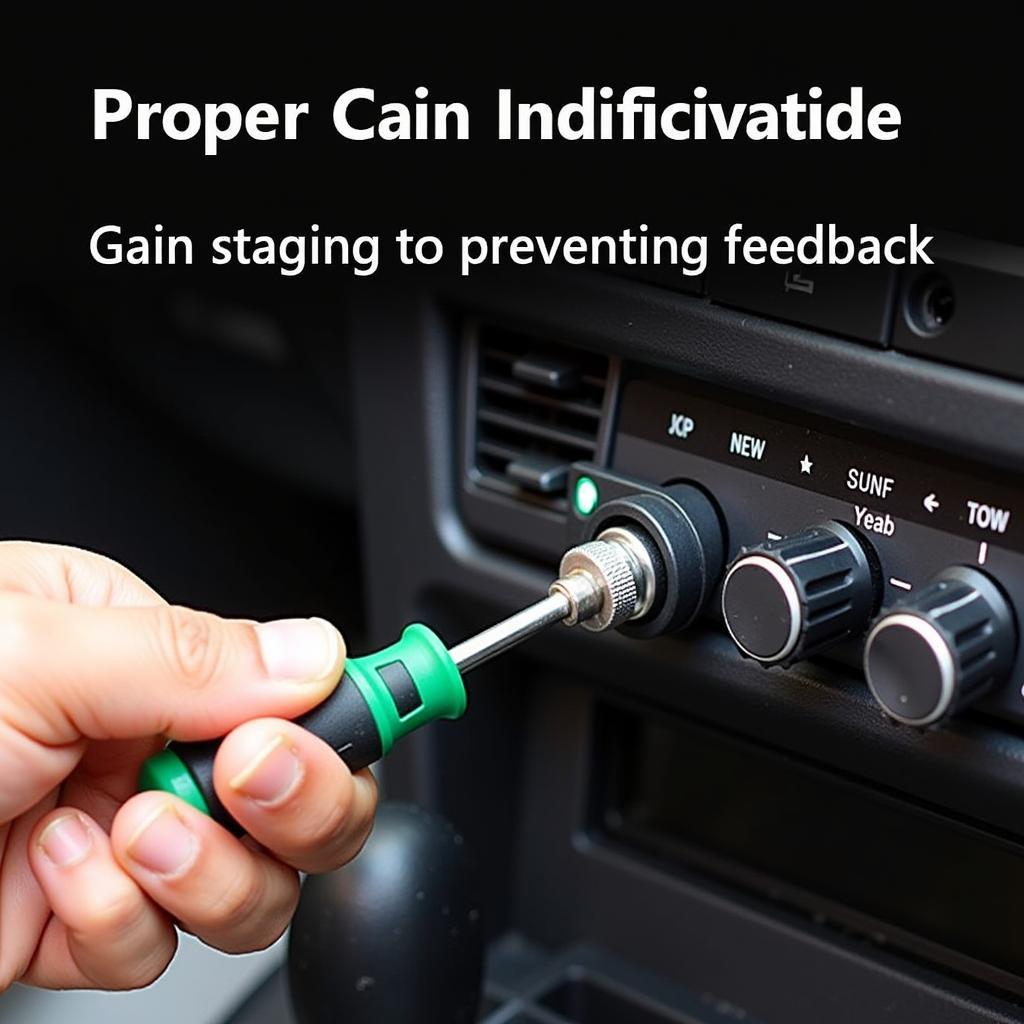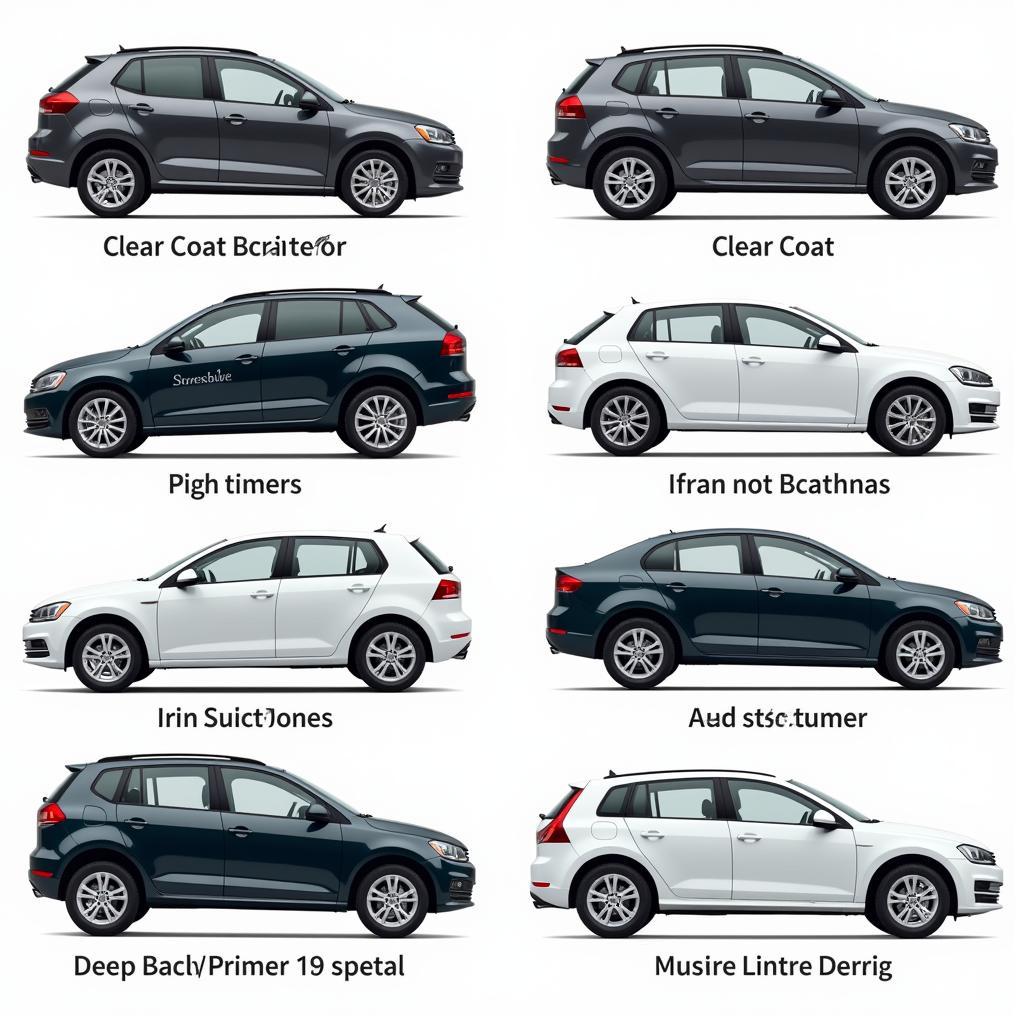Car audio feedback can be an incredibly frustrating issue, turning your favorite tunes into an unbearable screech. This problem can stem from various sources, making it difficult to pinpoint the exact cause. This guide provides a comprehensive approach to troubleshooting and resolving Car Audio Feedback Problems, empowering car owners, repair shops, and technicians to effectively diagnose and fix this annoying issue.
Understanding Car Audio Feedback
Car audio feedback, that high-pitched whine or squeal, occurs when the output of your car speakers is picked up by the microphone and amplified again, creating a loop. This loop amplifies itself continuously, resulting in the unpleasant noise. It’s similar to the feedback experienced when a microphone gets too close to a speaker at a concert. Understanding the underlying causes is crucial to effective troubleshooting.
video of problem solving connection car and motkrcycle
Common Causes of Car Audio Feedback
Several factors can contribute to car audio feedback problems. These range from simple issues like loose connections to more complex problems with the audio system’s grounding or the equipment itself. Identifying the root cause is the first step towards a solution.
Grounding Issues
One of the most common culprits is improper grounding. A poor ground connection can create a path for stray electrical signals to enter the audio system, leading to feedback.
Wiring Problems
Loose or damaged wiring can also introduce unwanted noise and interference into the audio system. Damaged cables can act like antennas, picking up stray signals and contributing to the feedback loop. Faulty RCA cables are often a source of this issue.
Gain Staging Issues
Improper gain staging, where the amplifier gain is set too high, can also cause feedback. This essentially over-amplifies the signal, making it more susceptible to feedback loops.
Equipment Malfunction
In some cases, a faulty component within the audio system, such as a failing amplifier or speaker, can be the source of the feedback. This is less common but should be considered if other troubleshooting steps fail.
Troubleshooting Car Audio Feedback: A Step-by-Step Guide
Here’s a systematic approach to troubleshoot car audio feedback:
-
Check the Grounding: Start by inspecting the ground connection of your car audio system. Ensure it’s securely connected to a clean, unpainted metal surface on the vehicle’s chassis.
-
Inspect the Wiring: Thoroughly examine all wiring for any signs of damage, loose connections, or improper routing. Replace any damaged or suspect cables.
-
Adjust the Gain: If the grounding and wiring appear to be in order, try adjusting the amplifier gain. Lowering the gain can often reduce or eliminate feedback.
-
Isolate the Problem: If the problem persists, try isolating the source of the feedback by disconnecting and reconnecting components one at a time. This can help you pinpoint whether the issue lies with the head unit, amplifier, or speakers.
-
Test with Alternative Equipment: If possible, test with alternative equipment, such as a different head unit or amplifier, to determine if a specific component is faulty.
 Car Audio Wiring Diagram: Understanding the Intricacies of Car Audio Wiring to Troubleshoot Feedback Problems
Car Audio Wiring Diagram: Understanding the Intricacies of Car Audio Wiring to Troubleshoot Feedback Problems
“A common mistake is overlooking the simple things like a loose ground wire,” says John Smith, a certified automotive electrician with over 20 years of experience. “Often, a simple fix like securing the ground connection can resolve the issue entirely.”
Preventing Car Audio Feedback
Prevention is always better than cure. Here are some tips to prevent car audio feedback problems:
- Ensure Proper Grounding: Use a high-quality ground wire and connect it to a clean, unpainted metal surface on the vehicle’s chassis.
- Use High-Quality Wiring: Invest in good quality RCA cables and speaker wires to minimize interference.
- Proper Gain Staging: Set the amplifier gain correctly to avoid over-amplification.
- Regular Maintenance: Periodically inspect your car audio system for any signs of wear and tear, and address any issues promptly.
 Adjusting Amplifier Gain: Fine-tuning the Amplifier Gain to Prevent Car Audio Feedback
Adjusting Amplifier Gain: Fine-tuning the Amplifier Gain to Prevent Car Audio Feedback
“Investing in quality wiring can save you a lot of headache down the road,” advises Jane Doe, a seasoned car audio installer. “Cheap cables are more prone to picking up interference and causing feedback.”
Conclusion
Car audio feedback problems, while annoying, are often solvable with a systematic troubleshooting approach. By understanding the potential causes and following the steps outlined in this guide, you can effectively diagnose and fix the issue, restoring the enjoyment of your car audio system. Remember, a solid ground connection, quality wiring, and proper gain staging are key to preventing feedback problems in the first place. If you’re still experiencing issues after trying these steps, don’t hesitate to contact us at AutoTipPro for assistance. You can reach us at +1 (641) 206-8880 or visit our office at 500 N St Mary’s St, San Antonio, TX 78205, United States.
FAQ
-
What is car audio feedback? Car audio feedback is a high-pitched whine or squeal caused by a loop where the output of the speakers is picked up by the microphone and amplified again.
-
What are the common causes of car audio feedback? Common causes include grounding issues, wiring problems, improper gain staging, and equipment malfunction.
-
How can I troubleshoot car audio feedback? Start by checking the grounding, inspecting the wiring, adjusting the gain, and isolating the problem component.
-
How can I prevent car audio feedback? Ensure proper grounding, use high-quality wiring, set the amplifier gain correctly, and perform regular maintenance.
-
What should I do if I can’t fix the feedback problem myself? If you’ve tried troubleshooting and still have issues, contact a qualified car audio professional for assistance.
-
Is car audio feedback always caused by a faulty component? No, often the issue stems from loose connections, improper grounding, or incorrect gain settings.
-
Can using a noise filter help with car audio feedback? In some cases, a noise filter can help reduce interference and mitigate feedback problems, but it’s important to address the root cause.





Leave a Reply